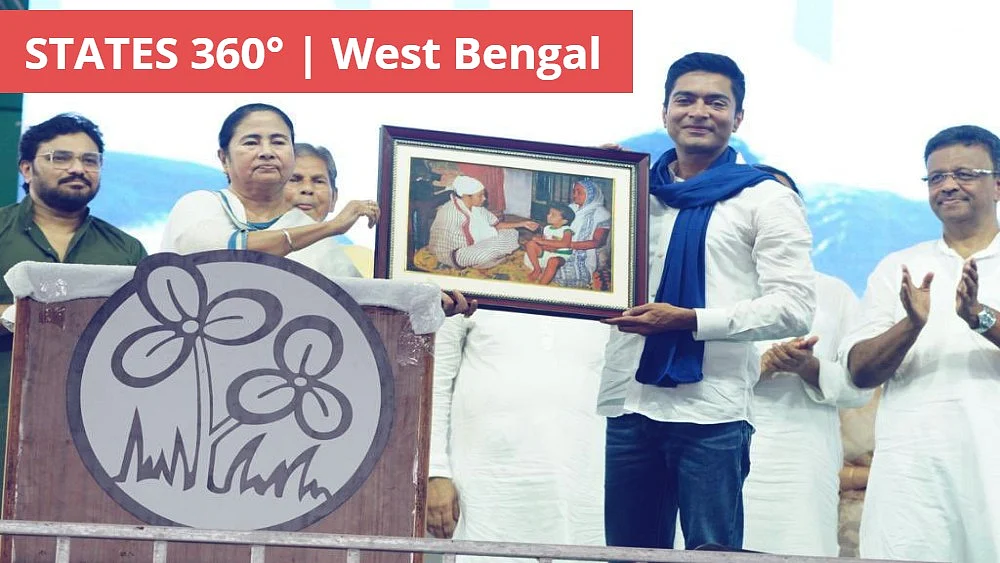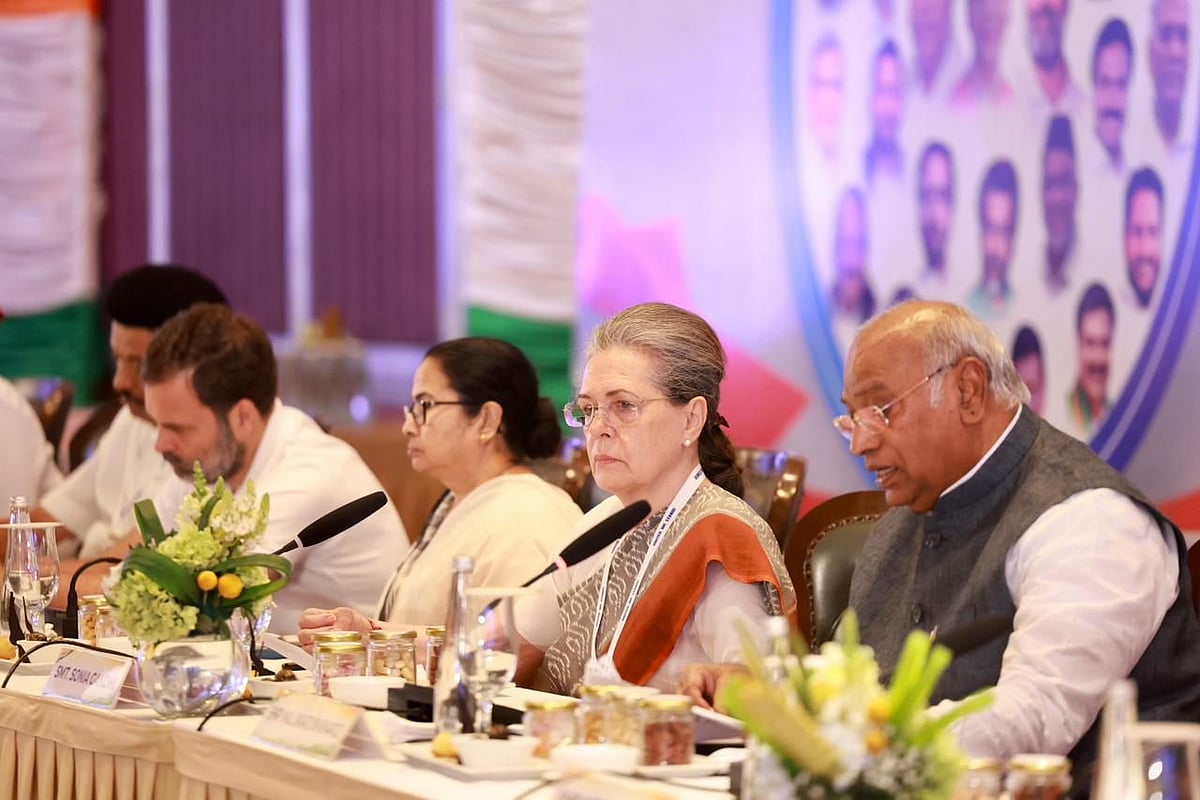West Bengal: Friendly fights, policing puzzles and 'new' politics
While liberal opinion is dismayed at the sharp comments from leaders of the TMC, CPI-M, and Congress, the BJP is trying to gauge the chances of a three- or four-cornered fight for Lok Sabha seats

The new year has started with national and Bengali media excitedly discussing the ‘stalemate’ in seat-sharing talks among INDIA bloc partners in West Bengal. Liberal opinion is dismayed at the sharp comments emanating from the leaders of the Trinamool Congress (TMC), the CPI-M — the big daddy of the Left Front — and the Congress in the state. BJP leaders are positively salivating at the prospect of a three-cornered or four-cornered contest for the 42 Lok Sabha seats.
Frequent visits by Amit Shah and JP Nadda, the grapevine says, have helped the party finalise its strategy, candidates and tactics to field independent candidates to divide anti-BJP votes in each constituency. The BJP knows that it must retain the 18 seats it won last time, if not increase its tally in the state if it wants to score big in 2024.
Effectively, seat sharing talks are confined to these 18 seats that the BJP won. Nobody expects TMC, which won 22 seats and the Congress, which won just two, to give them up. It is also clear that the Left Front, which had drawn a blank in the state last time, has few bargaining chips and cannot even afford to be seen to be collaborating with chief minister Mamata Banerjee, thanks to the Left Front’s trenchant opposition to her and her government.
If the three parties could agree on putting up the strongest possible candidates against the BJP in the 18 seats it holds, and thus bogging it down, the job of the alliance would become easier. TMC as the dominant party would also like to increase its Lok Sabha strength to 30 or more, for which it naturally aspires to contest at least 40 seats.

The state's Congress leaders do not seem to have come up with any innovative seat-sharing plan either. Its organisational strength being limited to pockets in North Bengal, it is reportedly keen to contest in 8 to 10 seats in the region, where it has traditionally banked on minority votes. A three-way split of minority votes in the region between TMC, CPI-M and the Congress is helpful to the BJP, which also gains by the counter-polarisation of non-minority votes.
The Congress, however, has forfeited the Raiganj seat, once held by the late Priya Ranjan Das Munshi, which it lost to Md Salim of the CPI-M and then to the BJP in the last two elections. Deepa Das Munshi, widow and political heir to PRD, has risen in the Congress but has been kept away from the state. She was first put in charge of Telangana and has now been packed off to Kerala to oversee the elections there.
The family of late A.B.A. Ghani Khan Choudhury in the Malda-Murshidabad region is also divided in its loyalty, with two of its members contesting the Jangipur seat, allowing TMC to win. The lone seat from Darjeeling was won by the BJP’s Raju Bista last time, and splinter groups of the erstwhile Gorkha National Liberation Front are too fragmented to pose a threat.
The BJP has failed to fulfil its promise to implement the sixth schedule in Darjeeling and carve out a separate state or Union territory in north Bengal. It remains to be seen if the demands are revived before the general elections. Multi-cornered and in some constituencies ‘friendly’ fights in the state appear to be inevitable at this point.
****
Appointments and disappointments
The appointment of Nandini Chakraborty — a relatively junior IAS officer of the 1994 batch — as home secretary and Rajeev Kumar as director-general of police (DGP) has baffled the state bureaucracy. Chakraborty superseded three seniors and was known for her confrontations with governor C.V. Ananda Bose when she was officiating as secretary to the governor.
She was sent back from Raj Bhavan at the behest of Raj Bhavan, and bureaucracy watchers wonder if the chief minister is signalling that the state government's fraught relationship with Raj Bhavan is about to worsen. They are also baffled because Chakraborty has been asked to continue as secretary (tourism) and parliamentary affairs. Chakraborty is the second woman to serve as home secretary, another Chakraborty (Lena) being the first.
Rajeev Kumar was the controversial Kolkata police commissioner implicated by the CBI for his alleged role in the Sarada chit fund case. When a CBI team reached the city to question Kumar in February 2019, the chief minister sat on a dharna to protest the action and Kumar was apparently untraceable for weeks, or so the CBI claimed.
The Supreme Court finally allowed him to be interrogated by the CBI in Shillong. The investigation apparently has not concluded, and an appeal by the CBI against relief granted to the IPS officer by the court earlier is said to be listed before the Supreme Court for the first week of January. While the case may or may not come up for hearing, the fact that it has found its way to the cause list after a mysterious gap of four years is significant.
Would Didi have been better off keeping the officer away from the limelight and in a less consequential post? Is the CBI sharpening its knives before the Lok Sabha elections? The next few weeks should provide an answer.
****
Mystery posters
Anonymous posters in various parts of the state on the last day of 2023 created a flutter in political circles. The posters did not carry any details or names of any individual, group or issuing agency, but they spoke of an impending ‘alternative politics’ in the state.
Left Front leaders sarcastically wondered what kind of alternative politics can be provided by people who are afraid to admit their ownership of the posters. Others quickly linked the posters to dissident Congress leader Koustav Bagchi, primarily because he had been speaking of the need for ‘alternative politics’.
Congress leaders blamed the BJP for instigating Bagchi, and the reaction of state BJP chief Suvendu Adhikari appeared to confirm the allegation. Adhikari advised ‘brother’ Bagchi to be patient. The inevitable return of Narendra Modi as prime minister in 2024 would provide the window to usher in an alternative in the next assembly election in 2026, he said.
Bagchi himself has denied any link to the posters, and wondered why he was not being suspended or expelled from the party if he was really guilty of anti-party activities. To add to the confusion, a section of the media speculated that the posters could have been put up by followers of the chief minister’s nephew Abhishek Banerjee, widely acknowledged as her political heir.
The speculation was apparently triggered by the nephew’s dissatisfaction with the ‘coterie’ around the chief minister. He had spearheaded the agitation against the Centre’s non-payment of dues to the state. He had led party workers to Delhi, organised protests and sit-ins in North Block, and threatened to intensify the fight against the Centre; but while it started with a bang, the agitation fizzled out in no time, with Mamata and other leaders not appearing too enthusiastic about it.
The chafing nephew feels that the inactivity of the party is sending the wrong message to the people and could be reflected in the Lok Sabha elections barely four months from now, and is said to be rooting for a ‘nabeen (new) Trinamool’.
****
Museum of the ‘word’
The 2001 census identified 122 major languages in the country and 1,599 other languages. A museum now seeks to showcase the country’s plurality and linguistic diversity. It will be India’s first museum to offer an ‘immersive experience’ of Indian languages. The ‘museum of the word’ is expected to open in February at Belvedere Estate, Alipore, which also houses the National Library.
The museum aims to preserve the histories of languages, scripts and literature, and will present scholars, poets and writers in Indian languages. It will focus on India’s linguistic variety and the many facets of various languages through oral traditions, manuscripts, printed books, and electronic texts.
Follow us on: Facebook, Twitter, Google News, Instagram
Join our official telegram channel (@nationalherald) and stay updated with the latest headlines
